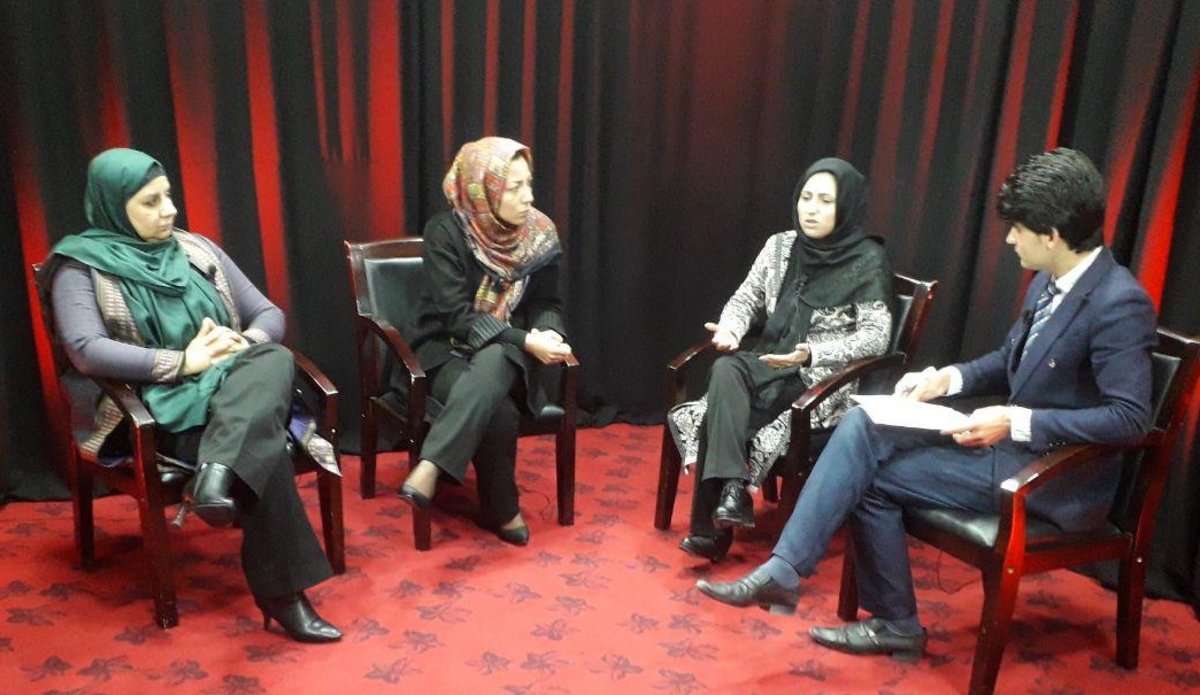Panelists discuss women’s safety and equal opportunities in the workplace
HERAT – Providing a safe working environment is essential to women’s personal development and participation in public life, stressed participants during a UN-backed TV discussion in the western province of Herat.
Panelists who included representatives from government, provincial authorities and women organizations said harassment of women in the workplace and public places is commonplace and a significant detriment to women’s empowerment and a violation of their rights and freedoms. They underscored that gender equality benefits not just women, but everyone.
“Workplace harassment is very prevalent and a major obstacle for many women,” said Sosan Behboodzadah, a women rights activist. “Even in public and government institutions harassment and systematic discrimination of women is a big issue” stated Behboodzadah and argued that most harassment goes unreported as most women fear reappraisals and further harassment.
“We need to create working environments that offer equal opportunities for women’s development,” said Fatemah Jafari, a Provincial Council member in Herat. She observed that female employees in comparison to their male peers occupy fewer positions of authority and are less likely to be considered for promotions or high-level positions. “This needs to change and can only happen through deliberate policies,” stated Jafari.
In 2018, the governor’s office, responding to mounting concerns appointed a gender specialist tasked with addressing the challenges faced by working women, including discrimination, abuse and sexual harassment and unequal opportunities.
Afghanistan has come a long way in so far as improving the rights of women. Through policies such as the Elimination of all forms of Violence Against Women and the National Action Plan for the Women of Afghanistan, the Afghan Government has taken significant steps to empower women and boost their participation and inclusion in public life.
Nonetheless, many factors and structural barriers continue to undermine the rights of women. Poverty, violence, illiteracy, negative stereotypes and harmful traditional practices hinder women’s progress and self-determination. In rural areas, even fewer women participate or benefit from public policies; most of them remain marginalized, poor and isolated.
Panelists recommended awareness programs for public institutions and ensuring that managers both prevent and set up structures to address discrimination and harassment.
The UN is committed to supporting the Afghan Government’s efforts and is working with a variety of institutions and actors to promote gender equality and non-discrimination, as well as supporting local programmes aimed at expanding opportunities for women, including access to education. Research has shown that providing women with better and equal opportunities empowers not only women and their families, but entire communities and economies.
Organized by UNAMA regional office in Herat, the TV programmes were aired by media partners and reached an audience of around one million people in Herat and the surrounding districts as part of a countrywide outreach programme aimed at creating platforms – using radio, television and social media – for local communities to engage in dialogue on pressing issues.
 UN
UN







